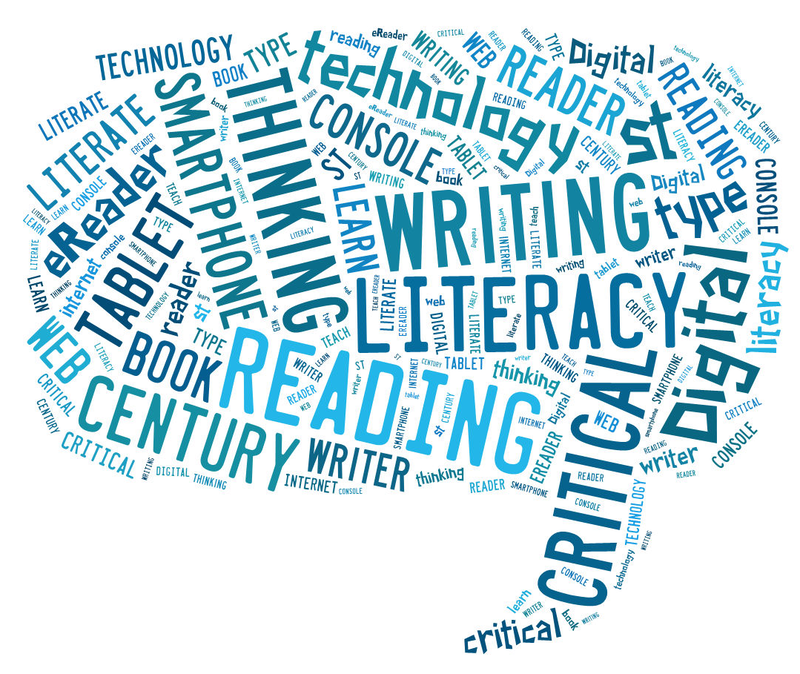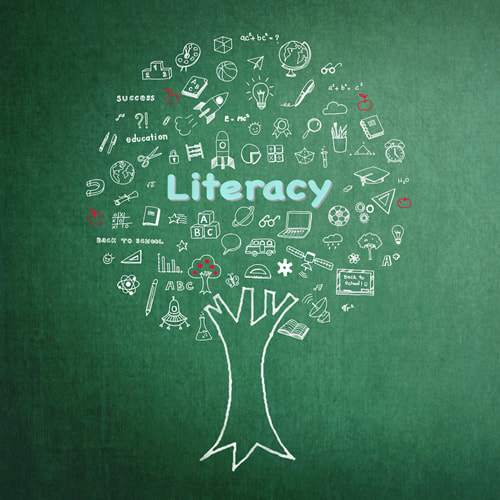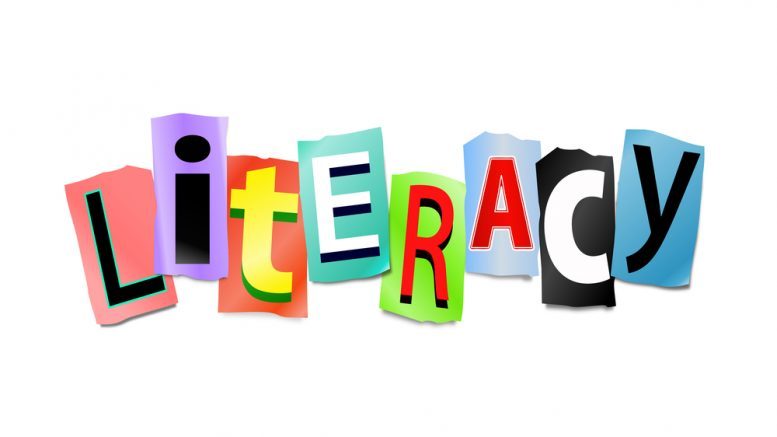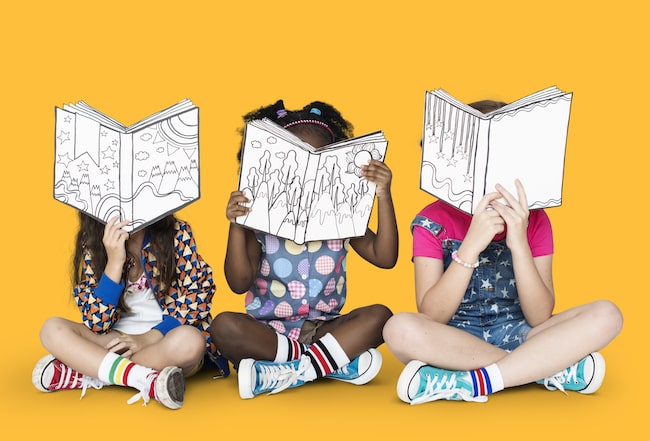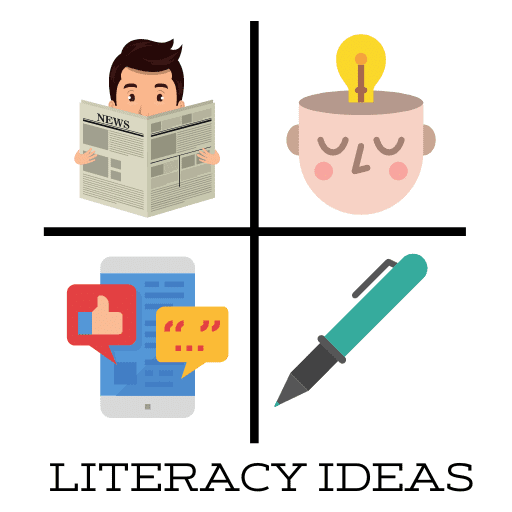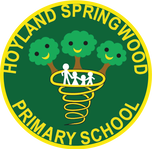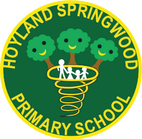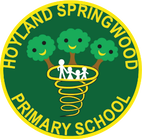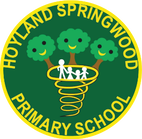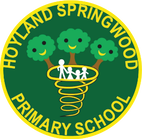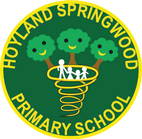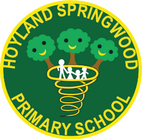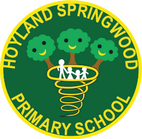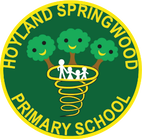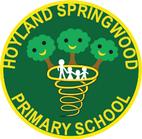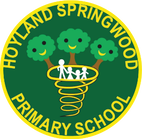The Teaching of Literacy
Our Literacy Leader is Mrs Rachel Parker
Literacy at Hoyland Springwood
At Hoyland Springwood, our Literacy curriculum is extremely important to us.
We are passionate about ensuring that children are given the opportunities to read, explore and utilise the best that has been thought and said, by introducing them to texts that they will become passionate about. Some of which they may never have heard of or had the chance to read otherwise. It is important to us that children are able to read and enjoy modern texts by authors such as Dahl and Walliams alongside definitive writers such as Dickens and CS Lewis. Our discrete teaching sessions of vocabulary will help children not only to understand these texts, but give them a broader understanding which to enrich daily conversation.
We also acknowledge and appreciate the breadth of experiences on our doorstep and in our surrounding area for us to incorporate into our curriculum.
We strive to ensure that the children who enter our care have mastered the subject to the best of their abilities by the time that they leave us, and they are able to use these skills to further their own learning within secondary school and beyond.
Below are documents that show how and when reading and writing are taught:
We are passionate about ensuring that children are given the opportunities to read, explore and utilise the best that has been thought and said, by introducing them to texts that they will become passionate about. Some of which they may never have heard of or had the chance to read otherwise. It is important to us that children are able to read and enjoy modern texts by authors such as Dahl and Walliams alongside definitive writers such as Dickens and CS Lewis. Our discrete teaching sessions of vocabulary will help children not only to understand these texts, but give them a broader understanding which to enrich daily conversation.
We also acknowledge and appreciate the breadth of experiences on our doorstep and in our surrounding area for us to incorporate into our curriculum.
We strive to ensure that the children who enter our care have mastered the subject to the best of their abilities by the time that they leave us, and they are able to use these skills to further their own learning within secondary school and beyond.
Below are documents that show how and when reading and writing are taught:
READING
Teaching reading is a responsibility we take very seriously and we are very committed to enabling all of our children to leave us as fluent, accurate and confident readers who read with purpose and enjoyment. We believe that reading is a critical skill which no child should be without and our approach ensures no child is left behind.
Throughout the school, we have a ‘phonics first’ approach to the teaching of reading and sustain our focus on the teaching of phonics from Early Years through to Year 6. Children who can decode (sound out the words on the page) quickly and efficiently are able to read with expression and fluency - a priority focus for us in our Early Years and Key Stage 1, so that children are ready for their Key Stage 2 reading curriculum.
Throughout Key Stage 2, we continue to develop sophistication in reading fluency and deepen children’s understanding of a wide range of fiction, non-fiction and poetry. Our Key Stage 2 reading curriculum involves a study of a wide range of authors and genres in fiction, to use non-fiction texts to undertake their own research across the curriculum, and to enjoy poetry and performance.
Our mission is simple: to develop children who enjoy reading and who read a lot of books during their time with us, and well beyond.
Below is how we teach reading at Springwood and the progression of the skills that are needed for every child in our school to become a reader.
Throughout the school, we have a ‘phonics first’ approach to the teaching of reading and sustain our focus on the teaching of phonics from Early Years through to Year 6. Children who can decode (sound out the words on the page) quickly and efficiently are able to read with expression and fluency - a priority focus for us in our Early Years and Key Stage 1, so that children are ready for their Key Stage 2 reading curriculum.
Throughout Key Stage 2, we continue to develop sophistication in reading fluency and deepen children’s understanding of a wide range of fiction, non-fiction and poetry. Our Key Stage 2 reading curriculum involves a study of a wide range of authors and genres in fiction, to use non-fiction texts to undertake their own research across the curriculum, and to enjoy poetry and performance.
Our mission is simple: to develop children who enjoy reading and who read a lot of books during their time with us, and well beyond.
Below is how we teach reading at Springwood and the progression of the skills that are needed for every child in our school to become a reader.
At Springwood, we map out the books that teachers share with the children to ensure effective coverage and progression. Below are the books that the children will read whilst at our school.
WRITING
Writing is a curriculum area which we have spent a long time developing
As children enter KS2, we begin asking children to draft their writing. These drafts are subject to a high level of marking and feedback which, alongside pupils, identifies all errors in spelling, punctuation and grammar and seeks to perfect the written form. Children go on to publish very high quality, very accurate writing which they are very proud of. This intensive feedback leads to accelerated progress in writing throughout KS2 and we are proud that our Y6 pupils year-on-year are very competent and confident writers as a result.
- We focus on a single genre of writing each half term and we model heavily so that all children have a very clear idea of what good writing looks like, and lots of opportunities to practice (and master) a certain style of writing before moving on.
- We scaffold the writing so that all children are confident to write and have the tools that they need to write well. Our very clear grammatical focus each half term guides us in our modelling and our expectations.
- We give children a lot of accurate feedback about their writing to ensure that they pay attention to the detail and write with accurate spelling, punctuation and grammar, as well as perfecting their handwriting over time.
- We celebrate and share our love of writing and the children love to be 'An Author At Work'
As children enter KS2, we begin asking children to draft their writing. These drafts are subject to a high level of marking and feedback which, alongside pupils, identifies all errors in spelling, punctuation and grammar and seeks to perfect the written form. Children go on to publish very high quality, very accurate writing which they are very proud of. This intensive feedback leads to accelerated progress in writing throughout KS2 and we are proud that our Y6 pupils year-on-year are very competent and confident writers as a result.
In addition to daily writing lessons throughout school, we also teach handwriting, spellings and grammar daily. We teach the fundamentals of writing discretely so that children have the skills, knowledge and experience they need to write well for life.

